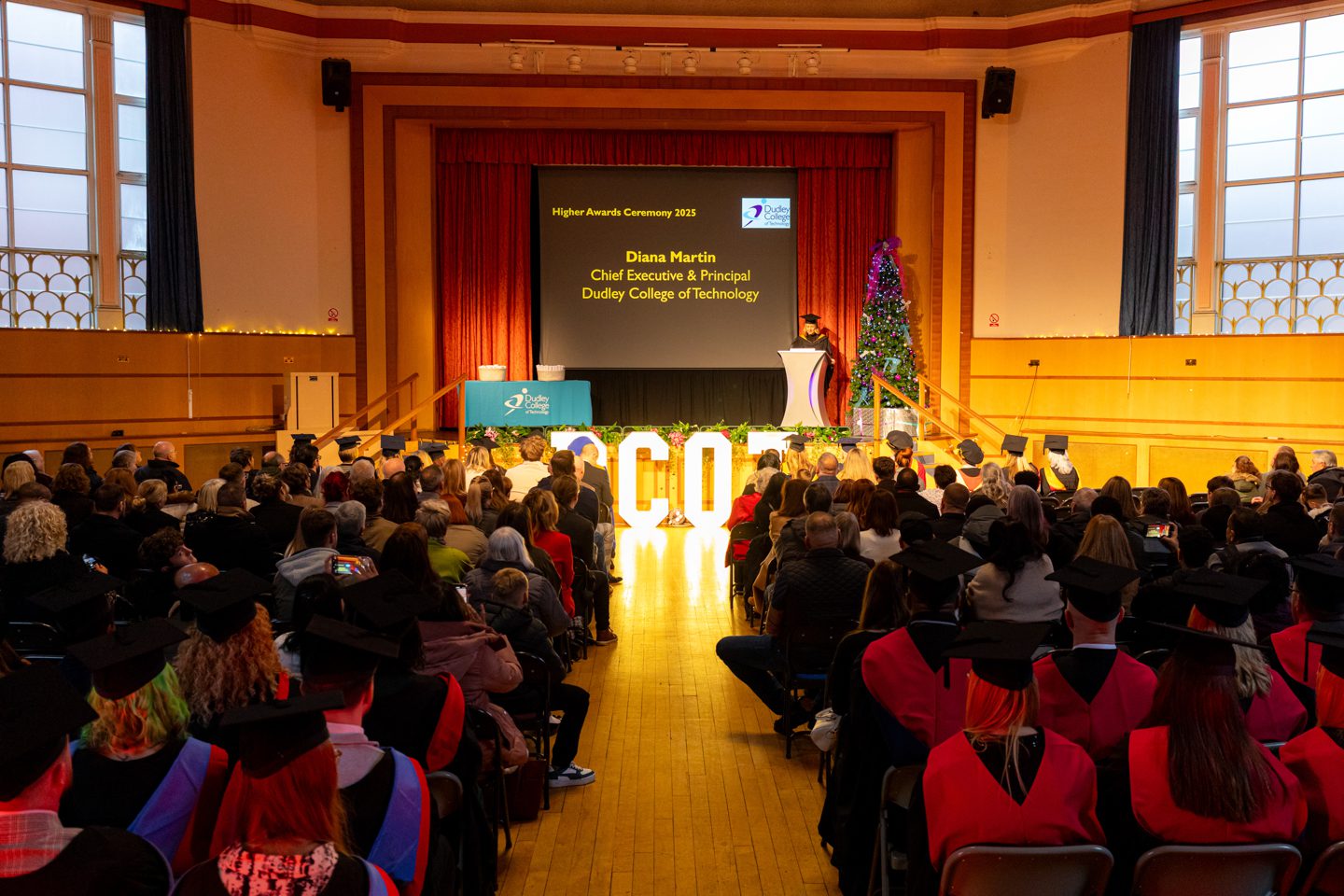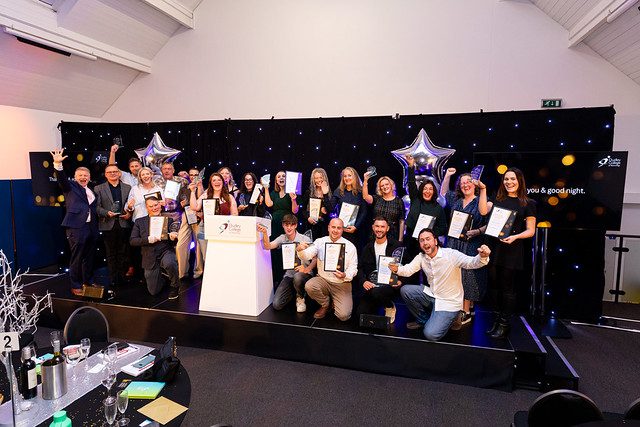A-Z of key terms
A
Adaptability: Ability to adjust to new conditions or changes in the environment.
Adaptive Capacity: The ability of systems, institutions, and communities to adjust to potential damages or opportunities arising from environmental changes, ensuring resilience and sustainability.
Adaptive Management: A structured, iterative process of decision-making in the face of uncertainty, with an aim to reduce uncertainty over time via system monitoring.
Afforestation: Planting trees in an area where there was no previous tree cover to increase forest cover and biodiversity.
Alternative Energy: Energy generated from non-traditional sources (e.g., solar, wind) that are renewable and have lower environmental impact than fossil fuels.
Anthropogenic: Human-caused changes to the environment, often related to climate change and pollution.
B
B Corp Certification: Certification of social and environmental performance, public transparency, and legal accountability to balance profit and purpose.
Baseline Emissions: The initial measurement of emissions before any interventions aimed at reduction.
Biodiversity: Variety of life in the world or a particular habitat or ecosystem, crucial for ecosystem resilience.
Biomimicry: The design and production of materials and systems that are modelled on biological processes.
C
Carbon Accounting: Measuring the amount of carbon dioxide emissions an entity is responsible for, used for regulatory and voluntary reporting.
Carbon Capture and Storage (CCS): The process of capturing carbon dioxide emissions and storing them underground to prevent them from entering the atmosphere.
Circular Economy: An economic model focused on designing out waste and pollution, keeping products and materials in use, and regenerating natural systems.
Carbon Footprint: The total greenhouse gas emissions directly or indirectly caused by an individual, organization, event, or product, expressed as a CO2 equivalent.
Carbon Intensity: The amount of carbon dioxide emissions produced per unit of output or activity.
Carbon Literacy: Knowledge and capacity required to create a positive shift in how mankind lives, works, and behaves in response to climate change.
Carbon Neutrality: Achieving a balance between emitted carbon and carbon offset by removing an equivalent amount from the atmosphere.
Carbon Offset: Reduction in emissions of carbon dioxide or other greenhouse gases made to compensate for emissions made elsewhere.
Carbon Sequestering: The process of capturing and storing atmospheric carbon dioxide (CO2) in a stable form, typically in natural reservoirs such as forests, soil, oceans, or underground geological formations.
Circularity: Continuous use of materials in a closed-loop system, ensuring materials are reused, remanufactured, or recycled to reduce waste.
Circular Business Models: Models where products are designed for reuse, recycling, and regeneration, minimizing waste.
Circular Design: Design approach focused on minimizing waste and maximizing the reuse of materials.
Circular Economy: Economic system aimed at eliminating waste and the continual use of resources through principles of reuse, repair, refurbish, and recycling.
Circular Procurement: Purchasing processes that prioritize goods and services that minimize resource use, are reusable, and have been produced sustainably, aligning with the principles of the circular economy.
Clean Technology: Products, services, and processes that use renewable materials and energy sources, reduce emissions and wastes, and have a minimal impact on the environment.
Climate Change: See also: global warming. The altering of the planet’s climate due to an increase in greenhouse gas (GHG) emissions from human activity.
Climate Change Adaptation: Adjustments in human or natural systems in response to actual or expected climatic stimuli or effects.
Climate Equity: The concept that climate change impacts and responsibilities are unevenly distributed across populations, and actions should ensure fairness, particularly for those most affected but least responsible.
Climate Change Mitigation: Policies and measures aimed at reducing greenhouse gases from companies and governments to lessen global impacts of climate change.
Climate (Change) Resilience: The ability to anticipate, prepare for, and respond to hazardous events, trends, or disturbances related to climate.
Compostable: Organic matter that can be broken down into carbon dioxide, water, and biomass by microorganisms in the environment.
Conservation: Sustainable use and management of natural resources including wildlife, water, air, and earth deposits.
Corporate Social Responsibility (CSR): A business approach that contributes to sustainable development by delivering economic, social, and environmental benefits.
D
Decarbonization: Process of reducing carbon dioxide emissions resulting from human activity in the atmosphere.
Deforestation: The process of harvesting forests for natural resources or to clear land for agriculture or construction.
Dignity, Diversity, Equity, and Inclusion (DDEI): A set of principles aimed at creating a respectful and inclusive environment where every individual is valued. *
Doughnut Economics: A visual framework for sustainable development shaped like a doughnut, combining the concept of planetary boundaries with social boundaries. *
E
E-Waste: Discarded electronic or electrical devices or their parts.
Ecodesign: The integration of environmental considerations into the design of products to minimize their environmental impact throughout the lifecycle.
Eco-Efficiency: Creating more goods and services with fewer resources and generating less waste and pollution.
Eco-Innovation: The development of products and processes that contribute to sustainable development, through reducing environmental impacts or achieving more efficient resource use.
Ecology: The study of the interactions between living organisms and their environment.
Ecological Footprint: A measure of human impact on Earth’s ecosystems, expressed as the amount of land required to sustain their use of natural resources.
Ecosystem: a community of living organisms (plants, animals, and microorganisms) in conjunction with the non-living components of their environment (such as air, water, and mineral soil), interacting as a system.
Ecosystem Services: Benefits provided by ecosystems that contribute to making human life both possible and worth living.
Eco-Tourism: Responsible travel to natural areas that conserves the environment, sustains the well-being of the local people, and involves interpretation and education.
Embodied Energy: The total energy required to produce a product, from the raw materials stage to delivery.
Endangered Species: Species of organisms that are at risk of becoming extinct due to various factors such as loss of habitat or reduction in numbers.
Energy Efficiency: Using less energy to provide the same service or useful output.
Environmental Footprint: Measure of the environmental impact of an individual, organization, or product.
Environmental Impact Assessment (EIA): A process of evaluating the likely environmental impacts of a proposed project or development, considering inter-related socio-economic, cultural, and human-health impacts.
Environmental Justice: The fair treatment and meaningful involvement of all people, regardless of race, colour, national origin, or income, with respect to the development, implementation, and enforcement of environmental laws and policies.
Environmental Management System (EMS): A set of processes and practices that enable an organization to reduce its environmental impacts and increase its operating efficiency.
Environmental Reporting: Disclosure of a company, city, state, or region’s impact on the environment.
Environmental, Social, and Governance (ESG): A set of considerations, including environmental issues, social issues, and corporate governance that can be considered in investing.
Ethical Fashion: Fashion that considers the social and environmental impacts of its production processes, materials, and supply chains.
Extended Producer Responsibility (EPR): Policy approach that holds producers accountable for the environmental impacts of their products throughout their life cycle.
F
Fair Trade: A trade movement aimed at helping producers in developing countries achieve better trading conditions and promote sustainable farming.
Fast Fashion: Business model characterized by rapid production and turnover of inexpensive clothing to align with the latest fashion trends.
Food Miles: Distance food is transported from the time of its production until it reaches the consumer.
Forest Stewardship Council (FSC): International non-profit organization that promotes responsible management of the world’s forests via timber certification.
Fossil Fuel Divestment: The removal of investment assets including stocks, bonds, and investment funds from companies involved in extracting fossil fuels.
G
Geoengineering: Large-scale intervention techniques aimed at affecting the climate, such as solar radiation management or ocean fertilization.
Global Reporting Initiative (GRI): An international independent standards organization that helps businesses understand and communicate their impact on critical sustainability issues.
Global Warming: See also: climate change. The increasing of the Earth’s average temperature due to a greenhouse gas (GHG) emissions from human activity.
Governance: Frameworks, processes, and relationships by which organizations are controlled and directed.
Green Building: A building that, in its design, construction, or operation, reduces or eliminates negative impacts, and can create positive impacts, on our climate and natural environment.
Green Hydrogen: Hydrogen produced using renewable energy sources, resulting in zero carbon emissions.
Green Procurement: Purchasing products and services with a lower environmental impact, considering factors like energy efficiency, recyclability, and minimal toxic substances.
Green Roof: A roof of a building that is partially or completely covered with vegetation, providing insulation, reducing stormwater runoff, and improving air quality.
Greenhouse Gas (GHG): Gases such as carbon dioxide and methane, which trap heat in the atmosphere and contribute to climate change.
Greenhouse Gas Emissions (GHG): Greenhouse gases, such as carbon dioxide and methane, which trap and hold heat in the atmosphere and contribute to climate change.
Greenhushing: Companies deliberately underreporting or downplaying their sustainability efforts to avoid scrutiny or accusations of greenwashing. This often involves keeping environmental achievements quiet, despite having legitimate initiatives.
Greenlabelling: The use of labels, certifications, or terms associated with environmental responsibility to give the appearance of being eco-friendly, without rigorous standards or third-party verification backing these claims.
Greenwashing: The practice of misleading consumers into believing that a company’s products, services, or policies are more environmentally friendly than they actually are. It involves exaggerating claims or making false statements about sustainability efforts to appeal to eco-conscious customers.
H
Habitat Restoration: Process of aiding the recovery of an ecosystem that has been degraded, damaged, or destroyed.
I
Invasive Species: Non-native species that cause harm to the environment, economy, or human health by disrupting ecosystems, outcompeting native species, or spreading diseases.
J
Just Transition: Ensuring that as economies shift towards low-carbon and environmentally sustainable practices, the process is fair and inclusive to all, including workers and communities.
K
Kyoto Protocol: An international treaty that commits state parties to reduce greenhouse gas emissions, based on the premise that global warming exists and is primarily driven by human activities.
L
Life Cycle Thinking: Consideration of the environmental impacts of a product or service throughout its entire life cycle.
Life Cycle Assessment (LCA): A method to evaluate the environmental impacts associated with all the stages of a product’s life, from raw material extraction through materials processing, manufacture, distribution, use, repair and maintenance, and disposal or recycling.
Local Procurement: Purchasing products and services from local suppliers.
M
Mitigation: The reduction of greenhouse gas emissions that are the source of climate change*
Montreal Protocol: An international treaty agreed upon in 1987 to phase out the production and consumption of ozone-depleting substances (ODS), such as chlorofluorocarbons (CFCs).
N
Natural Capital: The world’s stocks of natural assets, including geology, soil, air, water, and all living things.
Nature-Based Solutions: Actions that use natural processes and ecosystems to tackle social challenges like climate change, food security, or disaster risk.
Natural Capital Accounting: A method of calculating the total stocks of natural resources and the flows of ecosystem services they provide, to understand their contribution to the economy and human well-being.
Net Zero: A state in which the greenhouse gases emitted by an entity are balanced by the removal or offset of an equivalent amount from the atmosphere.
O
Offsetting: The practice of compensating for emissions by reducing emissions elsewhere.
P
Paris Agreement/Accord: A legally binding international treaty on climate change, adopted at COP21 in Paris in 2015. Its goal is to limit global warming to well below 2, preferably to 1.5 degrees Celsius, compared to pre-industrial levels.
Permaculture: Design philosophy that works with nature to create sustainable systems.
Planetary Boundaries: Limits within which humanity can safely operate to avoid destabilizing the Earth’s systems, such as biodiversity loss, climate change, and pollution.
Pollution: Presence in or introduction into the environment of a substance that has harmful or poisonous effects.
Polluter Pays Principle: The concept that those who produce pollution should bear the costs of managing it to prevent damage to human health or the environment.
Precautionary Principle: The concept that precautionary measures should be taken to prevent environmental harm even if some cause-and-effect relationships are not fully established scientifically.
Product Stewardship: Approach to managing the environmental impacts of products throughout their life cycle.
Q
Quadruple Bottom Line (QBL): An extension of the Triple Bottom Line that includes cultural aspects in addition to social, environmental, and economic factors.
R
Renewable Energy Certificates (RECs): Tradable certificates that prove that one megawatt-hour of electricity was generated from a renewable energy source.
Regenerative Agriculture: Approach to farming that works to regenerate topsoil and enhance biodiversity.
Renewable Energy: Energy from sources that are naturally replenishing but flow-limited; renewable resources are virtually inexhaustible in duration but limited in the amount of energy available per unit of time.
Renewable Resources: Natural resources that can be replenished naturally with the passage of time.
Resilience: The capacity of a system, community, or society potentially exposed to hazards to adapt, by resisting or changing in order to reach and maintain an acceptable level of functioning and structure.
Resilience Building: Actions or strategies aimed at increasing the capacity of systems, communities, and ecosystems to recover from disruptions, such as climate change or natural disasters.
Resource Efficiency: Using the Earth’s limited resources in a sustainable manner while minimizing environmental impact.
Responsible Investment: Investing in companies or projects that meet certain standards of environmental, social, and governance (ESG) criteria.
S
Science-Based Targets: Emission reduction targets set in line with the latest climate science to meet the goals of the Paris Agreement.
Scope 1, 2 & 3 emissions: Scope 1 emissions refer to direct greenhouse gas (GHG) emissions that occur from sources that are controlled or owned by an organization. This includes all land-use emissions from companies that own or control land to produce agricultural and forest-risk commodities. Scope 2 emissions refer to indirect GHG emissions associated with any purchases of electricity, steam, heat, or cooling. Scope 3 emissions are the result of activities from assets not owned or controlled by the reporting organization, but that the organization indirectly impacts its value chain. This includes the emissions linked to downstream companies where sourced commodities are being produced from forest-risk products through the Agriculture, Forestry and Other Land Use (AFOLU) sector (GHG Protocol).
Sustainable Development Goals (SDGs): 17 social goals established by the United Nations Department of Economic and Social Affairs to promote prosperity while protecting the planet.
Social Impact: Effect of an activity on the social fabric of the community and the well-being of individuals and families.
Sustainability: The practice of meeting current needs without compromising the ability of future generations to meet their own. It involves a balance across environmental, social, and economic dimensions, ensuring long-term health and resilience of both human and natural systems.
Sustainable Development: Defined by the Brundtland Report as “development that meets the needs of the present without compromising the ability of future generations to meet their own needs.” It emphasizes a balanced approach that integrates environmental stewardship, social equity, and economic growth.
Sustainable Finance: Investment and financial practices that consider environmental, social, and governance (ESG) factors to ensure long-term economic growth.
Sustainable Procurement: Process of purchasing goods and services that takes into account the social, economic, and environmental impact that such purchasing has on people and communities.
Sustainable Supply Chain: Supply chain that integrates environmental and social considerations in all aspects of product procurement, production, and delivery.
Sustainable Tourism: Tourism that takes full account of its current and future economic, social, and environmental impacts, addressing the needs of visitors, the industry, the environment, and host communities.
Systems Thinking: A holistic approach to analysis that focuses on the way that a system’s constituent parts interrelate and how systems work over time and within the context of larger systems.
T
Take-Back Programs: Programs in which manufacturers or retailers take back used products for recycling or proper disposal.
Thermal Efficiency: A measure of how well a system converts heat into work or usable energy.
Triple Bottom Line (TBL): An accounting framework that evaluates a company’s performance on three pillars: social (people), environmental (planet), and financial (profit).
U
Upcycling: The process of transforming waste materials or unwanted products into new materials or products of higher quality.
V
Value Chain: The full range of activities involved in the production, marketing, and delivery of a product, including the social and environmental impacts of each stage.
Vertical Farming: The practice of growing crops in stacked layers or vertically inclined surfaces to reduce the land use footprint.
W
Waste Hierarchy: The prioritization of waste management activities to prevent waste creation, reduce it at the source, reuse materials, recycle, recover, and dispose of waste in a way that minimizes environmental impact.
Water Footprint: The total volume of freshwater used to produce the goods and services consumed by an individual or community.
Water Neutrality: Balancing water use by reducing consumption and replenishing water sources to offset usage.
Water Stewardship: The responsible management of water resources, focusing on sustainable use and reducing environmental impact.
Wildlife Corridor: An area of habitat connecting wildlife populations separated by human activities or structures.
Z
Zero Emissions: No release of pollutants into the environment.
Zero Waste: A philosophy and design principle that encourages the redesign of resource life cycles so that all products are reused or recycled, and no trash is sent to landfills or incinerators.
Others
1.5 degrees Celsius: The target set by the 2015 Paris Agreement as the global average temperature compared with pre-industrial history. Scientists generally agree that global temperatures must be kept well below 2 degrees – ideally 1.5 degrees Celsius – to avoid the worst impacts of climate change.
Source: GPM Global Glossary of sustainability terms, other than those marked * , which are taken from United Nations Office for Disaster Risk Reduction



